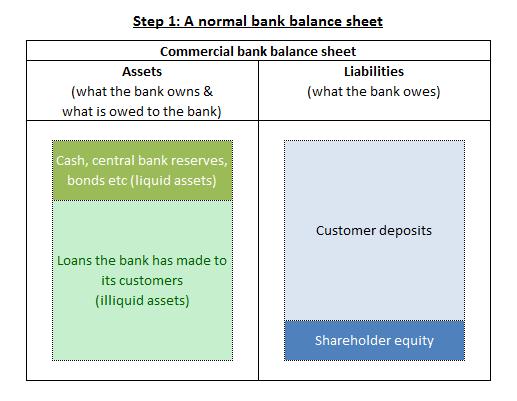 by ralfy » Thu 14 Jan 2016, 19:32:00
by ralfy » Thu 14 Jan 2016, 19:32:00
"Real money" functions in the same was as "non-real money," and money in the same way as credit in general: a medium of exchange, and not a commodity.
Likely one of the reasons why "real money" in the form of paper was used is because as the amount of transactions grew it became more impractical to bring large bags of "real money" in the form of gold or silver around: merchants found it more practical to buy and sell to each other using bank notes, especially when they had their gold and silver stored safely in banks. And since there were hardly any regulatory groups for banks, merchants were not inclined to disclose how much gold and silver they had, and the level of money use kept growing, then creating more money than there was gold became inevitable. Again, it's a feature of capitalist systems that require continuous growth due to profit reinvested and more borrowing. From a small economy we have a growing economy due to more people, more ways of earning, more demand to ensure basic needs and even middle class conveniences are met.
Similarly, more of "real money" in the form of paper was replaced by numbers in hard drives as it was impractical to drive around armored trucks of paper money and coins around to buy things worth hundreds of millions or billions of dollars. That's why much of money supply worldwide consists of numbers in accounts, and often stored digitally.
Meanwhile, businesses found ways of borrowing more money, seeking investors for partnerships, etc., without having to go through banks. Not surprisingly, so did governments, especially given the increase in government services, military costs, and more regulation needed to support a huge global economy with all sorts of businesses, competitors, and investors hammering out agreements, etc.
Given the global population that is served by that global economy, i.e., with rising population, more people wanting to have healthier children and longer lives, and more middle class conveniences ranging from passenger vehicles to houses to professional work that did not involve manual labor in factories and farms, there was no going back to a smaller economy. And with that came problems such as peak oil, global warming, and rising debt leading to one financial crash after another.
At some point, all these crises will lead to a return to small economies and localization, and similar to those faced by the majority of the world's population, i.e., earning only three dollars a day, using scrap and locally available materials to build houses by hand, hardly any access to paved roads, health clinics, medicine, electricity, potable water, and more, etc.









